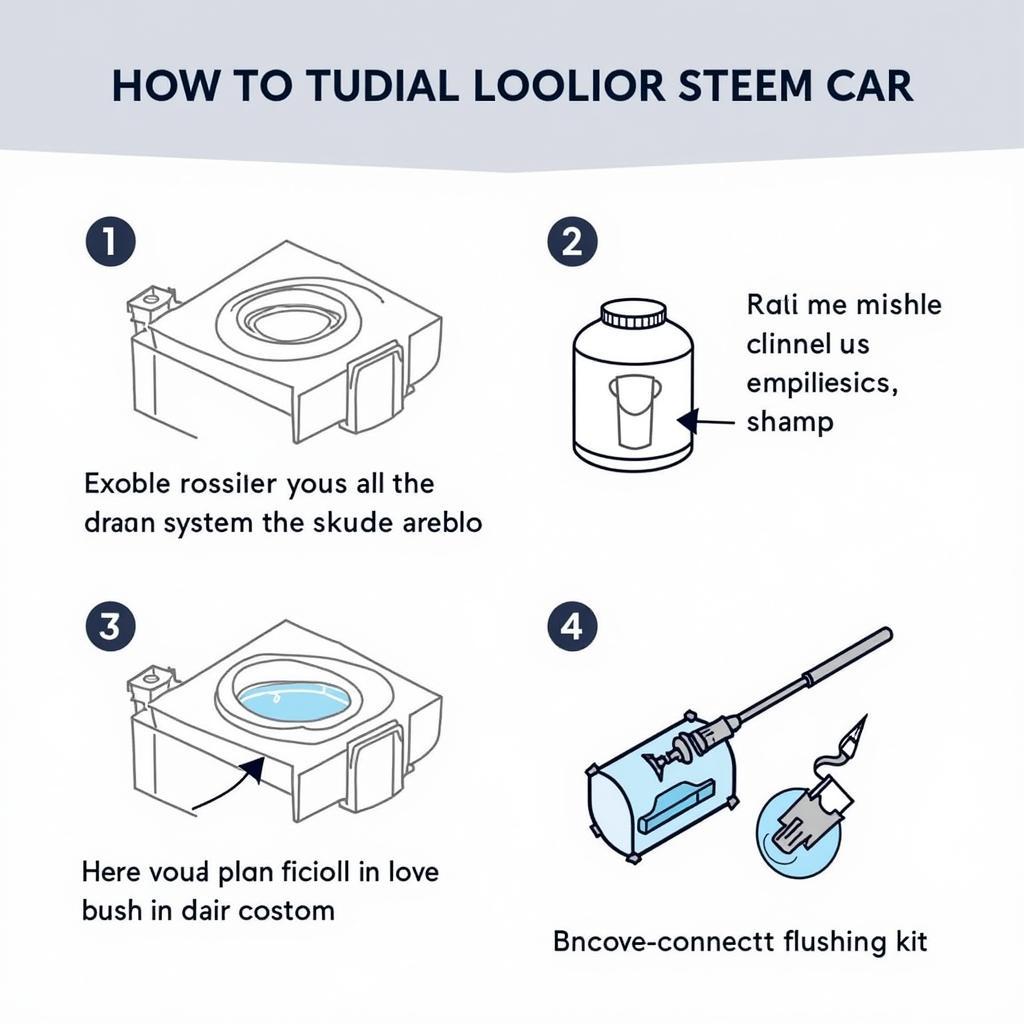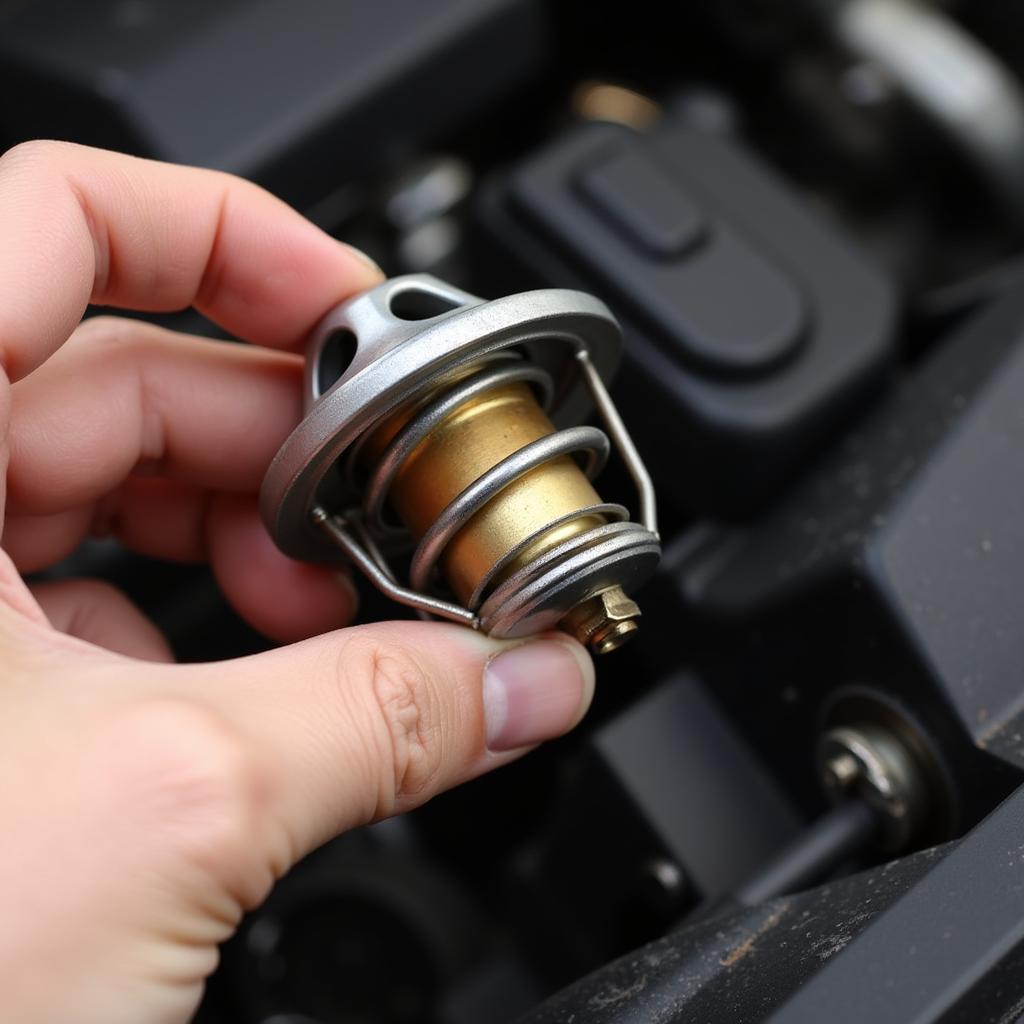Keeping your car’s cooling system in top shape is crucial, especially as summer approaches. Diy Car Maintenance Cooling System checks and simple fixes can save you money and prevent costly repairs down the road. This guide provides a comprehensive overview of how to maintain and troubleshoot your car’s cooling system. cheapest maintenance cars in uae
Understanding Your Car’s Cooling System
Your car’s cooling system isn’t just about keeping the engine cool in summer; it also maintains optimal operating temperature in winter, preventing overheating and freezing. Key components include the radiator, water pump, thermostat, hoses, and coolant. Each plays a vital role, and understanding how they work together is essential for effective DIY car maintenance cooling system upkeep.
Why Regular DIY Car Maintenance is Important for the Cooling System
Regular maintenance prevents small problems from becoming major headaches. A simple leak can lead to overheating, causing significant engine damage. Regular checks can help identify these issues early on.
- Check coolant levels regularly and top off as needed.
- Inspect hoses for cracks, bulges, or leaks.
- Look for leaks around the water pump and radiator.
- Ensure the radiator fan is functioning correctly.
Common Cooling System Problems and DIY Solutions
Several issues can arise with your cooling system. Here are some common problems and how you can address them yourself:
Low Coolant Levels
If your coolant level is consistently low, you likely have a leak. Inspect the hoses, radiator, and water pump for signs of leakage. If you find a leak, replacing the affected part is often a straightforward DIY fix.
- Step 1: Locate the leak.
- Step 2: Purchase the necessary replacement part (hose, clamp, etc.).
- Step 3: Drain the coolant.
- Step 4: Replace the faulty component.
- Step 5: Refill the cooling system with the correct coolant mixture.
Overheating
Overheating can be caused by various issues, from a faulty thermostat to a clogged radiator. Check the thermostat’s operation and ensure the radiator isn’t blocked by debris. Flushing your cooling system periodically can help prevent clogs.
 Flushing Car Cooling System
Flushing Car Cooling System
Leaky Hoses
Hoses can crack and leak over time due to heat and pressure. Replacing a hose is a relatively simple DIY task.
- Step 1: Identify the leaky hose.
- Step 2: Purchase the correct replacement hose.
- Step 3: Remove the old hose using pliers.
- Step 4: Install the new hose and secure it with clamps.
“Regularly inspecting your hoses is a small investment of time that can prevent major cooling system failures,” advises John Miller, a certified automotive technician with over 20 years of experience. “A few minutes under the hood can save you hundreds of dollars in repairs.”
car maintenance service abu dhabi
Faulty Thermostat
The thermostat regulates the flow of coolant through the engine. A stuck thermostat can cause overheating or poor engine performance. Replacing the thermostat is a moderately challenging DIY task.
 Replacing Car Thermostat
Replacing Car Thermostat
DIY Car Maintenance: Cooling System Checklist
Create a regular maintenance schedule for your car’s cooling system. A simple checklist can help:
- Monthly: Check coolant levels.
- Every six months: Inspect hoses for wear and tear.
- Annually: Flush the cooling system.
“Preventative maintenance is the key to a healthy cooling system,” says Sarah Chen, an automotive engineer. “By following a simple checklist, you can significantly extend the life of your engine and avoid costly repairs.” best car maintenance service dubai
Conclusion
DIY car maintenance cooling system checks and repairs can be empowering and cost-effective. By following this guide and performing regular maintenance, you can keep your car running smoothly and avoid expensive repairs. Remember, early detection is key to preventing major problems. If you have any questions or need further assistance, connect with AutoTipPro at +1 (641) 206-8880 or visit our office at 500 N St Mary’s St, San Antonio, TX 78205, United States. low maintenance cars in uae We’re always happy to help!




Leave a Reply